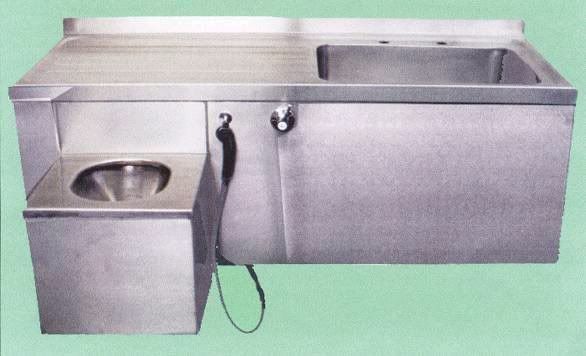There is much difference of opinion amongst different faiths as to the permissibility of embalming. A brief overview of some of the larger faiths positions are examined below

- All of the major branches of the Christian faith, including Catholic denominations, allow embalming, with the exception of Eastern Orthodoxy, which only allows embalming if required by law or other necessity.
- The Book of Mormon and The Church of Jesus Christ of Latter-day Saints do not profess against embalming. Often, due to the custom of church members dressing the deceased, embalming is given preference.
- Buddhism and Taoism beliefs accept embalming as a valid practice.
- Many authorities hold Hinduism does not accept embalming. In practice, this is not an adamant prohibition and embalmings for those of Hindu faith are known to happen, generally for repatriation to India or the South Pacific and for the purposes of viewing and funerary rites at the family home.
- People of Bahá'í Faith are not embalmed. The body is instead washed, and then placed in a shroud of white clothes (cotton, linen or silk). The body must be buried in a cemetery that is no more than one hour's travel from the place of death and within 24 hours of death. The body is interred facing east. Specific prayers for the dead are pronounced to support the progress of the soul.
- Zoroastrians traditionally hold a type of sky burial within structures known as Towers of Silence in which the body is exposed to weathering and predation to dispose of the remains, and thus embalming the body is contrary to their funeral designs. This is due to the Zoroastrian belief that the dead body is unclean and the pure elements of earth and fire should not be allowed to come into contact with it. This practice is not universally performed anymore, and many Iranian Zoroastrians perform traditional cremations and burials instead.
- Muslims are required to be buried within 24 hours of death if possible. Embalming is forbidden. The body is still washed and prepared specifically for interment. This procedure is to be done according to the last will of the deceased, preferably by the spouse, or by a close relative of the deceased who is of the same gender. He or she is then dressed in a plain white burial shroud (for women, the hair, ears and neck are covered as they were in life, preserving her dignity before men who are not closely related; men are buried in their ihram, or pilgrim garb, as worn during the Hajj in Mecca). Muslims believe that the spirit remains with the body from death until after burial, which is the reason for same-day burial, as well as the aforementioned procedures; the body is treated with the same care and respect as in life so as to not cause undue stress to the deceased. For the same reason, cremation is also forbidden. Prayers and readings of the Qur'an are spoken aloud to give comfort to the deceased, and the body is not left alone even for a time following the burial, during which the deceased is buried (preferably without a casket) on his or her right side, facing Mecca.
- Traditional Jewish law generally forbids embalming, and burial is to be done as soon as possible - preferably within 24 hours. However, under certain circumstances, embalming may be permitted if it is impossible to bury a person immediately (such as a crime victim), or to permit the deceased to be buried in Israel. Guidance of a Rabbi or the local chevra kadisha (Jewish Burial Society) should be sought regarding any questions, as particular circumstances may justify leniencies. Notably the Biblical Joseph was embalmed (Genesis 50:26).

No comments:
Post a Comment